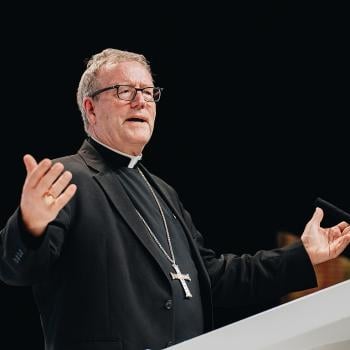"Dad, why do people who are not Christians still celebrate Christmas?"
This is the kind of insightful question that can only come from the mouth of a 9-year-old. My daughter wonders why people who do not attend church still have Christmas trees, bake Christmas cookies, put colored lights on their houses, go to Christmas parties, and give gifts on December 25th. To phrase her question differently, she wants to know how Christmas—the birth of the baby Jesus—became embedded in American culture to the point that it could be celebrated by her non-church-going friends and their families.
From the perspective of the Bible and Christian theology, Christmas is about the Incarnation. It is the story of God revealing himself to humankind in the form of a baby, the child born to Mary in that Jerusalem stable. Indeed, the Word became flesh and dwelt among us . . .
But in America, the biblical and theological meaning of Christmas has always existed in tension with cultural forces that have sought to draw one's focus away from the "Reason for the season." In fact, for most of American history, the birth of the Savior has taken a back seat to the merriment and commercialism of that "most wonderful time of the year."
Do you wish we could go back to a simpler time when our society understood what Christmas was really about? I am writing to tell you that such a Christmas golden age has never existed in America. Let me explain.
Some of the earliest settlers to British-America brought their Christmas culture with them. In England, Christmas was an important date on the church calendar, but the celebration of the Christ-child who came to Earth to die for the sins of the world was rarely part of the week-long festivities. Christmas was a carnival—a time of feasting, shooting guns, playing rough music, card-playing, drinking to excess, disorderly public activity, and other forms of raucous behavior.
This kind of Christmas merriment was a regular part of seasonal celebrations in Anglican Virginia and eastern seaboard towns such as New York and Philadelphia. And it continued into the 19th century. In the South, former slave and abolitionist Frederick Douglass wrote: "Not to be drunk during the holidays was disgraceful." Slave-masters would give their slaves a break from work during the Christmas season, but they would provide them with alcohol and encourage them to drink heavily so they would always associate freedom with a state of drunkenness.
In 17th-century New England, Puritans frowned upon the celebration of Christmas and outlawed it for more than half a century. They believed it was necessary, as Christians pursuing lives of holiness, to separate themselves from sinful behavior associated with the way the holiday was celebrated in jolly old England. The Puritans, and later a host of evangelical reformers, should be commended for their efforts to separate the theological meaning of the birth of Christ from the prevailing culture, but in the long run they failed. The non-Puritan colonists were just too merry.
By the late 19th-century, Christmas had become domesticated. The Victorians took Christmas from the rough streets of the working-class city to the comforts of the middle-class home. As Santa Claus, gift-giving, and Christmas trees took center stage each December, so did consumerism. Department stores created Christmas wonderlands where the nativity story was often indistinguishable from the holiday shopping experience. In 1898, John Wannamaker built a giant church—complete with an organ and a choir—in the rotunda of his New York store. The Macy's Thanksgiving Day parade, which was first held in 1924, would soon become the unofficial start to the "Christmas season." Few Americans today know when Advent begins, but they certainly know about "Black Friday."
As Christmas became commercialized, Christians did their best to keep the "Christ" in Christmas. Churches continued to offer spaces where the Christian meaning of the holiday would be proclaimed. Yet, as historian William Leach has observed, most churches failed to engage the larger culture of Christmas consumerism from a critical perspective, opting instead to "turn inward" and largely ignore the growing commercialism attached to the holiday. As a result, Christmas in America still belongs to the Wannamaker's and the Macy's of today's corporate world.
Sadly, the celebration of the birth of Jesus Christ has never been the primary reason why Americans flock to their trees to open gifts on Christmas morning. As I tried to explain to my daughter, the practice of pausing to reflect on the true meaning of Christmas has always been, and will probably always remain, a counter-cultural act—a practice that requires one to break with the American past and follow the narrow way that leads to life.
Merry Christmas!
12/22/2010 5:00:00 AM





